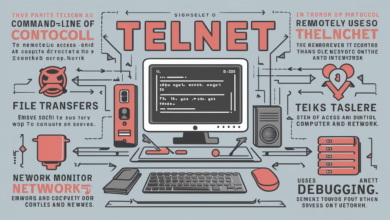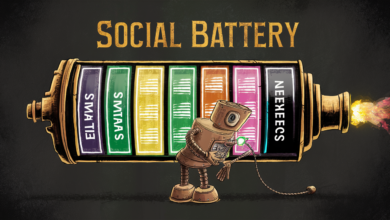Introduction
Technology is the heartbeat of our modern world, touching every facet of life. From simplifying daily tasks to redefining entire industries, it has woven itself into the fabric of society. But how did we get here, and where are we headed? Let’s take a journey through the transformative power of technology and its profound effects.
The Early Days of Technology
When we think about technology, images of sleek gadgets and sophisticated systems might spring to mind. However, the roots of tech stretch back to humanity’s earliest days. The creation of simple tools—such as sharp stones for cutting—marked the dawn of technological innovation. The invention of the wheel, a seemingly simple device, revolutionized transportation and trade, setting the stage for civilization as we know it.
The Industrial Revolution
Fast forward to the 18th century, and the world saw its first major tech boom during the Industrial Revolution. This era introduced mechanized production, which increased efficiency and reshaped economies. Factories sprouted in urban centers, creating jobs and driving migration to cities. The steam engine, one of the era’s marvels, epitomized human ingenuity and laid the groundwork for modern engineering.
The Digital Revolution
The mid-20th century ushered in the Digital Revolution, an era that changed everything. Computers transitioned from room-sized machines to devices that could fit on a desk. The internet, initially a military project, transformed into a global network connecting billions. This digital leap made information accessible at the click of a button and introduced the concept of a truly interconnected world.
Modern-Day Technology
Today, technology is more integrated than ever. Smartphones are essentially pocket-sized supercomputers, granting us access to information, communication, and entertainment wherever we go. Artificial intelligence (AI) and machine learning are no longer just concepts from sci-fi movies; they’re shaping industries and improving efficiency in ways previously unimaginable.
Technology in Communication
Remember when sending a letter took days or weeks? Now, we can connect with loved ones halfway across the world in seconds. Social media platforms like Instagram, Facebook, and Twitter have turned the world into a global village, enabling instant communication. While this connectivity has its perks, it also raises concerns about digital addiction and mental health.
Technology in Healthcare
In healthcare, technology has been a game-changer. Advanced imaging techniques like MRI and CT scans have improved diagnostic accuracy, while robotic surgery allows for precision unimaginable a few decades ago. Telemedicine, accelerated by the COVID-19 pandemic, has made healthcare more accessible, enabling consultations from the comfort of one’s home.
Education and Technology
Gone are the days when learning was confined to classrooms. With the rise of online platforms like Coursera and Khan Academy, knowledge is just a few clicks away. Virtual classrooms have also gained traction, offering flexibility and accessibility to students worldwide. However, ensuring equal access to these resources remains a challenge.
Technology in Entertainment
Entertainment has undergone a tech-driven renaissance. Streaming platforms like Netflix and Spotify have replaced traditional media consumption, offering personalized experiences. Gaming has also evolved, with virtual reality providing immersive experiences that blur the lines between reality and fantasy.
Challenges of Technology
Despite its benefits, technology isn’t without its downsides. Cybersecurity threats loom large, with hackers constantly devising new ways to breach systems. Privacy concerns are equally pressing, as companies collect and monetize vast amounts of user data. Striking a balance between convenience and security is essential.
Economic Impact of Technology
The tech industry has been a significant job creator, offering opportunities in fields ranging from software development to digital marketing. However, automation powered by AI poses a dilemma: while it boosts productivity, it also threatens traditional jobs. Preparing the workforce for this shift is critical.
Environmental Implications
Technology’s environmental footprint is another concern. The production and disposal of electronic devices contribute to e-waste, a growing problem. On the flip side, green technology, such as solar panels and electric vehicles, offers hope for a more sustainable future.
Future Trends in Technology
What does the future hold? The metaverse—a virtual universe where people can interact in real-time—is gaining momentum. Quantum computing promises to solve problems beyond the reach of traditional computers, potentially revolutionizing fields like cryptography and medicine.
Ethics in Technology
As we innovate, ethical considerations must remain front and center. AI development, in particular, requires careful regulation to prevent misuse. Balancing technological advancements with human values is crucial for ensuring a harmonious future.
Conclusion
Technology is both a tool and a teacher, shaping the way we live, work, and think. Its dual nature—offering incredible opportunities while posing significant challenges—requires thoughtful navigation. By fostering innovation with responsibility, we can harness tech’s power to build a better, more inclusive world.
FAQs
What is the most significant technological advancement in history?
The invention of the internet stands out as a groundbreaking milestone, transforming communication, education, and commerce.
How has technology impacted human interaction?
While technology has made communication faster and more accessible, it has also introduced challenges like reduced face-to-face interaction and digital dependency.
What are the benefits of green technology?
Green technology promotes sustainability by reducing carbon footprints and fostering renewable energy use, combating environmental degradation.
How can individuals protect their privacy online?
Using strong, unique passwords, enabling two-factor authentication, and being cautious with personal information sharing can help safeguard online privacy.
What role will AI play in the future of technology?
AI is expected to drive innovation across industries, from healthcare to transportation, while also raising ethical and regulatory considerations.






